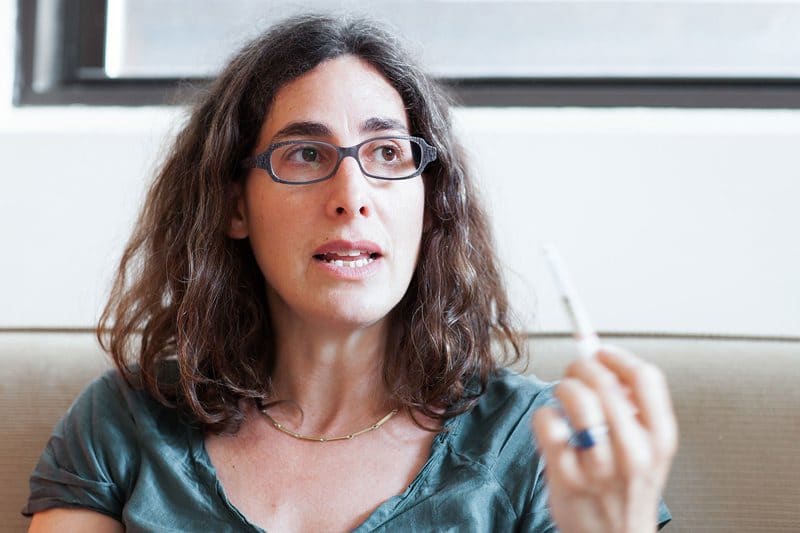Quick Q&A With Sarah Koenig

Sarah Koenig Courtesy Meredith Heuer
What are the strengths and weaknesses of the podcasting format?
I like the immense freedom it gives you. There aren’t really rules or conventions yet. I don’t see any downside to that. Of course, this doesn’t mean that all podcasts are good, or that they’re making the most of this freedom in a responsible way. But the potential is there.
You can make your podcasts any length you choose. Is it nice not to be limited to a certain number of inches or minutes?
It’s great. I worked for This American Life for a long time, and sometimes you’d have a story that was 27 minutes, and we only had 23 for the broadcast that week, so you had to cut. That’s really painful, because those four minutes mean a lot to you and the story.
You generally cover one topic per season, and it requires months of reportage. How do you pick your subjects?
The truth is, there’s no method. It’s a little random. Sometimes it’s something that’s already on your desk that you shoved aside for a while, but you’re still interested in. Sometimes, it’s just luck. There’s no step-by-step system for finding good stories.
Did you watch Unsolved Mysteries back in the day?
No, I lived in Russia for a few years in the ’90s, and I missed a lot of must-see TV. There’s a whole bunch of touchstone movies and TV shows that I just don’t remember. So Unsolved Mysteries was probably during that time. Plus, I’m not really into crime stories.
Wait, what? All three seasons of Serial have been devoted to criminal investigations.
Well, I don’t hate them. It’s just not my ambition to pursue them. What I like about some cases is not the crime part, but the aftermath. What did the system make of this, and was it handled right? The crimes aren’t really the point. It’s the judgment and the punishment.
So could Serial focus on something totally unrelated to crime?
It’s possible. We’re open to anything. (Co-creator) Julie Snyder and I are interested in criminal-justice stuff, but it’s not like it’s the mission of the show. The mission is to make the best work we can make in a serialized form. If anybody has a good story, bring it.
What’s the hardest part of putting together a season?
The toughest part is when I’m reporting and I don’t know if it’s leading anywhere. Is there a question that’s worth answering, and even if there is, am I going to be able to answer it with intelligence? I get freaked out about that part, and that feeling can last a long time.
Is that where you are with season four?
Yes, that’s sort of where I am. I go into this weird fugue state. No one can talk to me for five months. No one should feel sorry for me. It’s my choice. But this production schedule is not for the faint of heart.





